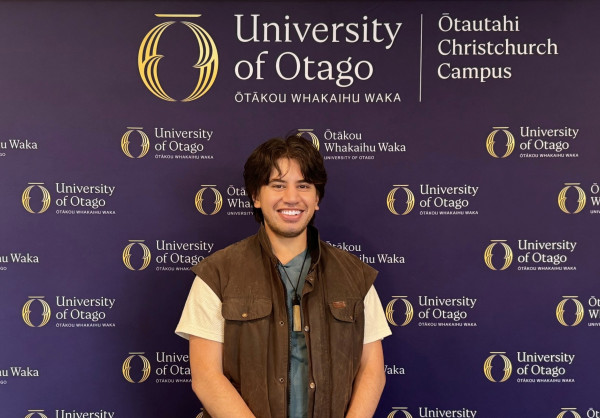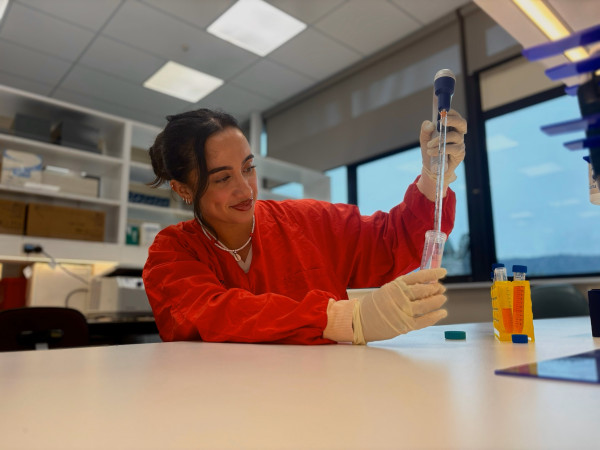Two Ngāi Tahu researchers receive funding for research to improve cancer outcomes for whānau
Apr 9, 2025
Two Ngāi Tahu researchers are among five Māori researchers receiving funding from Te Kāhui Matepukupuku o Aotearoa (the Cancer Society of New Zealand) and Hei Āhuru Mōwai Māori Cancer Leadership Aotearoa for cancer research aimed at addressing health inequities.
Jayde Ngata (Ngāi Tahu, Ngāti Porou) from the University of Otago, Christchurch, will lead research focused on understanding how tumour bacteria can help improve the effectiveness of immunotherapy for people with colorectal (bowel) cancer. Jayde’s research will also explore the acceptability and accessibility of using tumour tissue models for research, with a particular focus on Māori bowel cancer patients and their whānau.

Jayde Ngata
Jayde says his interest in cancer research began during his honours’ year.
“I became fascinated by how small molecular changes can affect the immune system and cancer development. There is still so much to learn about our connection to the gut microbiome and its influence on our overall health, particularly in the context of gut cancers.”
His passion for science more generally is deeply entwined with strong whānau support and role models, including his late Uncle Norm Dewes, a strong advocate for the community.
“My uncle always encouraged me to pursue a PhD and to fight for change in our community,” says Jayde. “This research is my way of continuing that fight for better cancer outcomes and a better health system for all.”

Gemella Reynolds-Hatem
Gemella Reynolds-Hatem (Ngāi Tahu - Ngāi Tūāhuriri, Ngāti Hāteatea, Ngāti Waewae) from the University of Otago, Dunedin has received a Master’s scholarship for her work that will focus on improving outcomes for Ngāi Tahu whānau impacted by a CDH1 gene mutation, particularly breast cancer in wāhine.
Gemella will test specific drugs (capivasertib and fulvestrant) to see if they can stop tumour growth in CDH1 cancer models. Additionally, she will engage with whānau at Tuahiwi through wānanga, integrating tikanga and Māori cultural practices.
“During the last year of my undergraduate degree, a tuakana at Ōtākou Whakaihu Waka alerted me to the CDH1 gene and its impact within Ngā iwi Māori. After my first hui with Matua Parry I was informed of the CDH1 mutation within the iwi I whakapapa back to. To me this was a tohu from my tīpuna that this is where I am meant to be and this mahi is what I am meant to be a part of. I knew it was my calling to do this for my people, but to also continue the path our tuakana has begun to allow the stream of tauira Māori to continue within Te ao Pūtaiao. Mō tātou, ā, mō kā uri ā muri ake nei. For us and those after us.
“My goal is to ensure the health care system better serves our people and provides a space for our people to talk about their journey with the CDH1 mutation but to make change for Māori by Māori.”